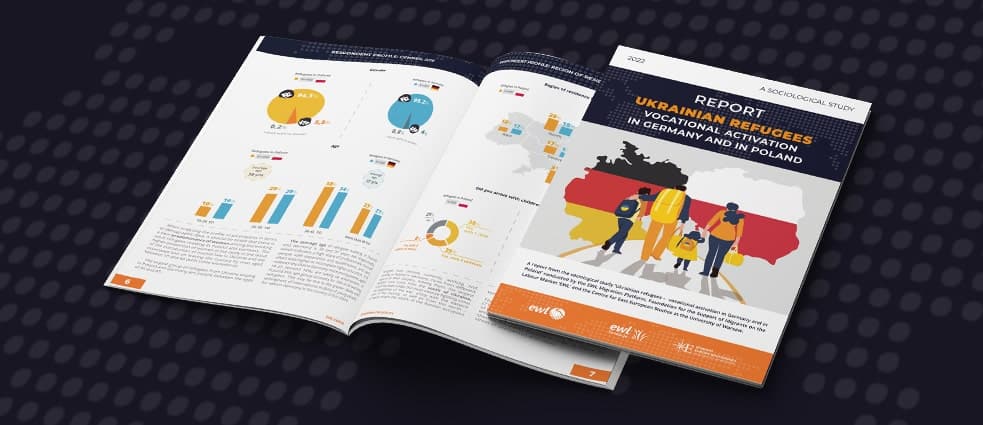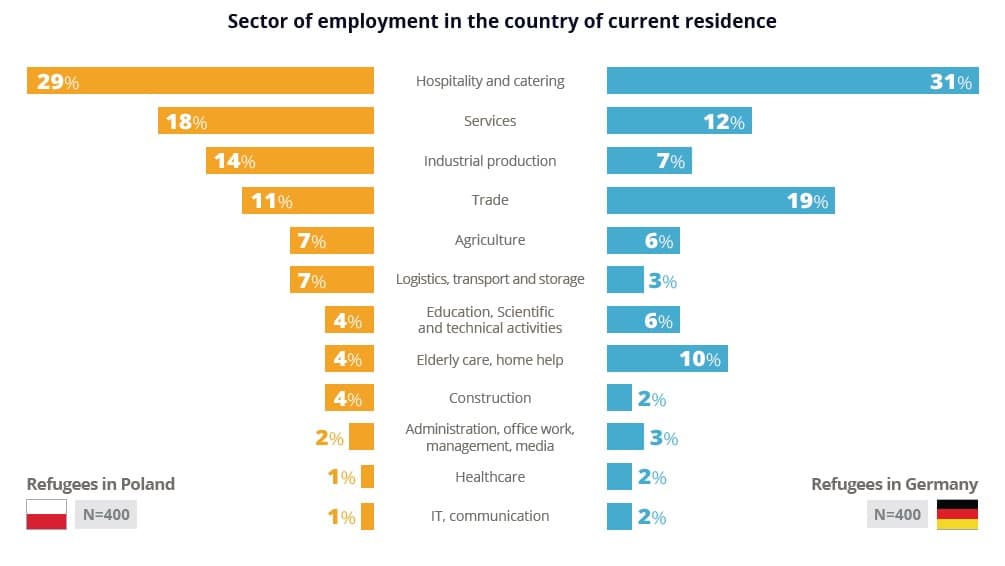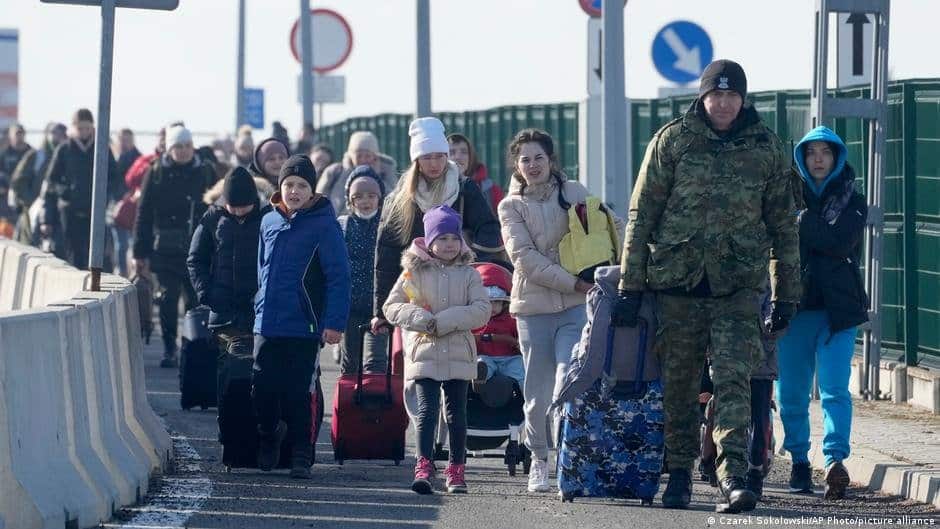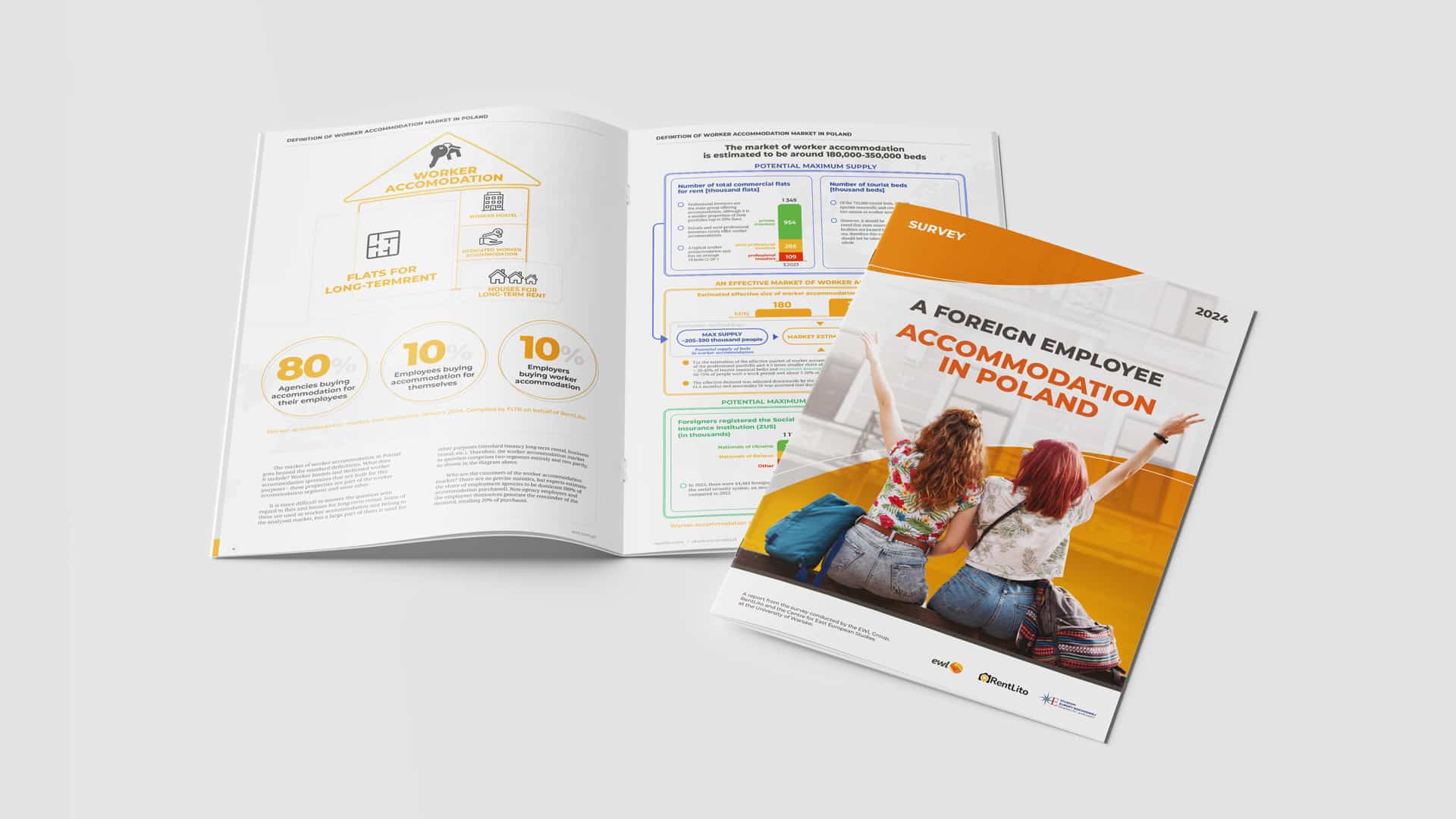
It has been six months since the outbreak of Warsaw of war in Ukraine, which has left a strong mark on the socio-economic situation of European countries, also because of the scale of migration, which is unique in world history. The European Union has widely opened its borders to Ukrainian refugees, offering a simplified way of residence legalisation, providing free access to public services and the labour market. Our research conducted in cooperation with partners from Centre for East European Studies of the University of Warsaw in the spring of this year showed that the majority of adult refugees from Ukraine residing in Poland are planning to take up employment.
Ukrainian refugees are an opportunity for the European labor market
Almost 40% of the working refugees from Ukraine residing in Poland and Germany are refugees in the 36-45 age bracket. This demonstrates a high share of people of the working age, which is of great importance for the European labour market.
Among refugees working in Germany, a significant group, about 16%, are young people aged 18-25, while in Poland it is only 10%. The arrival of many of them is determined by their high capacity for cross-border mobility and the desire to take up well-paid work.
Apart from sheltering Ukrainian refugees, development opportunities are also important
Despite the lack of direct border proximity, Germany has become a destination country for a significant group of refugees from Ukraine due to the opportunities for work and development, which represent another important priority after meeting the basic needs of finding a safe haven during the war.
The respondents residing in Poland and Germany are mostly people with higher and incomplete higher education. The percentage of people with university education in Germany (60%) is higher than in Poland (46%).
Where did Ukrainian refugees find employment in Poland and Germany?
Refugees from Ukraine who arrived in Germany were also most likely to find employment in the hospitality sector (31%). In second place was the trade sector (19%) and in third was the services sector (12%). Nearly 10% chose to work in elderly care and home help, in which the demand for employees is consistently high. In addition, 7% of respondents started work in industrial production, and 6% in both, education and agriculture.

After arriving in Poland, refugees from Ukraine most often took up employment in the hotel and catering sector (29%), services (18%), production (14%), trade (11%), as well as in agriculture (7%) and logistics (7%).








